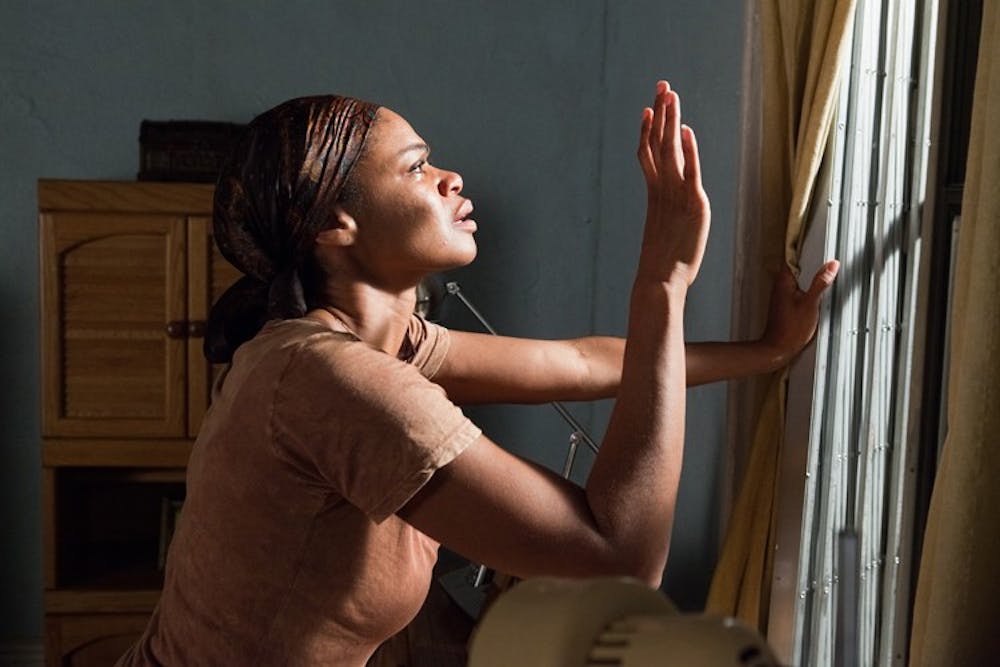Tyler Perry has become the master of the dramatic and soulful romantic comedy. With blockbuster hits like “Diary of A Mad Black Woman” and “Madea’s Family Reunion” under his belt, Perry is once again taking inspiration from the stage to the silver screen. But this time around, he’s sinking his teeth in a little bit deeper.
Perry’s latest venture (which he wrote, produced and directed), “For Colored Girls” takes audiences on a journey of eight women who are thrown into situations dealing with love, STIs, sexuality, identity, abandonment, rape, infidelity, abortion and finding sisterhood.
The film is an adaptation of the poetic stage play “For Colored Girls Who Have Considered Suicide When the Rainbow Is Enuf.” Ntozake Shange wrote the play in 1975, which was staged on Broadway was nominated for a Tony Award for best play in 1977.
While the film’s main demographic is African-American females, actress Phylicia Rashad — best known for her role as Clair Huxtable in the iconic sitcom, “The Bill Cosby Show” — believes it’s something all women should see.
“There are so many women in this world who share these experiences of hardships and they are not all from one place,” Rashad said. “Nor are they from the same socio-economic status or ethnicity. These are experiences that are shared by women all over the world throughout time — and that’s that truth.”
While Rashad knows that the heavy themes of the film might make audiences uncomfortable, she says it is important to recognize these issues and work together as a society in order to find a resolution.
“I think all women are colored women. I think it’s something to be taken through the labyrinth of these lives and exposures and to come to the resolution at the end,” she said. “It is a resolution that is so worth getting there. It is so worth the journey to get there.”
The film boasts a slew of famous names, such as Janet Jackson, Thandie Newton, Whoopi Goldberg, Loretta Divine, Anika Noni Rose, Kimberly Elise, Kerry Washington and Phylicia Rashad. Each performance is powerful, truly making up the heart of the film. They make the audience care for characters that are trapped in an endless melodramatic film that at times appears too soap opera-ish for the average moviegoer.
Rashad believes the format of the story will be new to the audience.
“I saw the original Broadway production when it appeared in the late ‘70s. There has never been anything like it and this film is doing the same thing.”
And yet, that is a particular criticism of the film. It’s presented as an adaptation of the play, however, it does not come off that way. Rather, it’s merely a play being recorded on camera. The audience is presented with the dialogue and plot, but is drowned with extended monologues and poems reciting the same experience that the audience just witnessed. The difficulty transitioning the poetic play into film is apparent and it is not a good thing.
At times, the characters take turns bashing men, particularly black men. It often seems as though the hardships and struggles of each character all resulted from men doing wrong. The film balances this notion with revealing the damaging effects of men who are broken by a society that offers them no opportunities to shine, suffocated by systems that have failed them.
The performances portrayed in the film are well worth the $15 ticket at the box office, but the mediocre screenwriting creates a soap opera atmosphere that could potentially make the audience lose focus on the characters’ struggle in finding a resolution.
“For Colored Girls” is now in theaters everywhere.
thescene@theeagleonline.com





